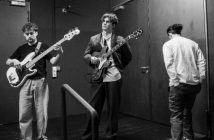With the birth of modern social media platforms in the early 2000s, the world got that much smaller. Private lives could now be on display for the general public to ravenously and carelessly consume, regardless of their disposition or intent with that information. It was no longer just the paparazzi shoving cameras into the faces of our icons but our icons themselves. The enigmatic musician may have met his or her match.
From Freddie Mercury to Ziggy Stardust via Sasha Fierce, musicians have always had a history of embodying personas on stage to inspire, to tell a story or to unleash an alter ego more outrageous or confident than their own. Different from their true personalities they may be, but up on stage it is impossible for fans to know what is real and what isn’t, especially since they don’t know the “real” them to begin with.
There was no one quite like Freddie. For someone like him, a man everyone thought they knew because of his celebrity, being enigmatic wasn’t so hard. For one, the self he presented on stage – diva, queen – and the music he wrote – dramatic, ambiguous – were perpetuated by his own elusiveness. The media and his fans, though, were quite happy to invent their own arbitrary versions of him. He was a cultural icon, and so his persona, which they more often than not synonymised with himself, was created and manipulated by his consumers. This illusion of intimacy with Freddie and the self-entitlement this entailed meant his image was never fixed. Everyone had their own impression and opinion of him, and between that and Freddie’s own complex and multifaceted personality, he and his persona got by just fine. All Freddie had to do was sit back and watch. But for a man who both craved and loathed the limelight he was showered in, avoiding interviews and distrusting of most journalists except a select few, the enigma he presented only lured people in all the more.
In a world of social media, no one can maintain that amount of elusiveness. If the artists themselves aren’t posting updates and videos for their rabid fans, which is every PR company’s wet dream, someone else is. But these posts not only give the illusion of a connection and closeness between icons and their fans, but they can also define that person. The mysticism behind an artist is lost when you can see what they ate for breakfast, and with that, some of the compulsion that attracts people toward them.
But it says as much about us as it does about the stars whose content we gobble up on social media sites. In a world of binge watching and consumer power, our demand for more and more extends to every facet of our lives. We want to know everything about our heroes, and we want to know now. If that comes at the cost of the pedestal we sit them on, so be it. There just might be a little less magic and a little less stardust on the stage tonight.



